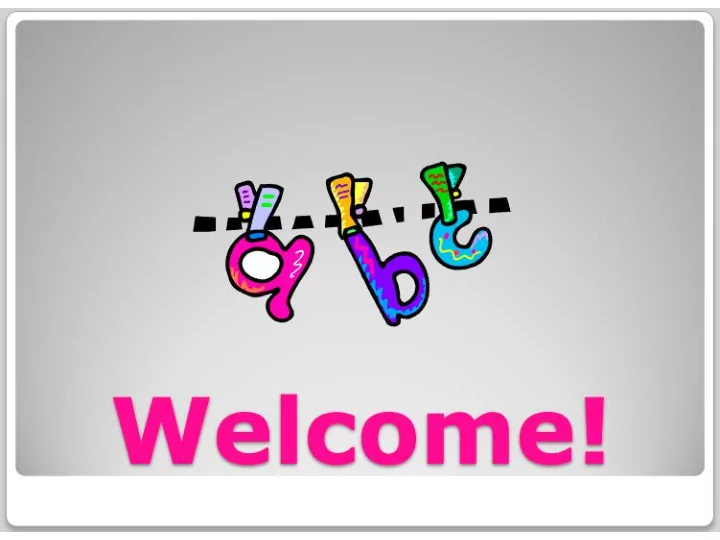

• Phonics is the link between letters and the sounds that they make. • Children are taught to read by breaking down words into separate sounds or ‘phonemes’. They are then taught how to blend these sounds together to read the whole word.
Initial Sounds - phase 2
• Discrete 20 minute phonics lessons 4 times a week. • Through hearing children read. • Through writing activities in English. • Through handwriting practice. • Games and independent activities.
• Tricky words of the week. (These are words that are not phonetic so need to be learnt by sight e.g. ‘said’) • Recap sounds through actions and rhymes. • Discussion around focus sound in isolation through videos and reading. • Reading and writing the sound within a word through Nessy games and activities. www.nessy.com • Reading and writing the sound within a sentence.
? Count the phonemes! ai rai n t rai n s nai l
ai rain t r ai n s nai l
ai t r ai n r ai n s n ai l
• Every Year 1 child in the country takes a phonics screening check in the same week in June. • The aim of the check is to ensure that all children are able to read by the end of year two. • It is designed to assess their understanding of phonics and their ability to use this to decode words.
• The check is very similar to tasks the children already complete during phonics lessons. • Children will be asked to ‘sound out’ a word and blend the sounds together. eg d-o-g – dog • The focus of the check is to see which sounds the children know and therefore the children will be asked to read made up ‘nonsense’ words . • There are 40 words in total with a mixture of real and nonsense words.
• Read with your child daily (little and often) • Recap sounds and their rhymes. • Encourage your child to use the sounds when writing. • Support your child with their spelling homework (tricky word focus) • Read to your child.
Online resources and games... Oxford Owl: www.oxfordowl.co.uk Phonics Play: www.phonicsplay.co.uk Letters & Sounds: www.letters-and-sounds.com Articulation film clip: http://www.teachfind.com/nationalstrategies/teaching-activities- related-articulation-phonemesvowels-and-consonants Teach Find: www.teachfind.com Scotts MLE Reception page: BBC: www.cbeebies.co.uk Free resources to support learning... www.twinkl.co.uk www.letters-and-sounds.com
Recommend
More recommend